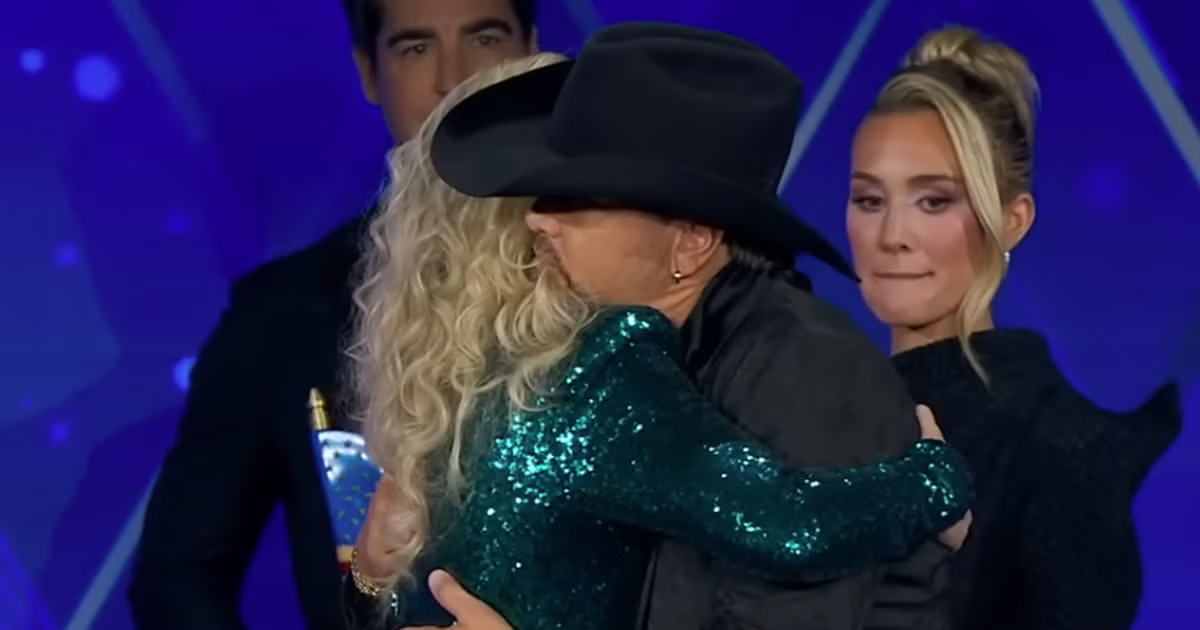Erika Kirk Hug Goes Viral: Jason Aldean Backlash Explained

The Internet Won’t Let Erika Kirk Grieve — How Her Hug With Jason Aldean Became a Trial by Social Media
At the Fox Nation Patriot Awards, Erika Kirk’s embrace with country star Jason Aldean was meant as gratitude — but it became fuel for a viral storm. What does this moment reveal about public grief, gendered judgment, and the fine line between free speech and defamation online?
A Moment of Comfort, a Wave of Controversy
On November 6, 2025, at the Fox Nation Patriot Awards in Brookville, New York, Erika Kirk, 36, accepted the first Charlie Kirk Legacy Award — a tribute to her late husband, Charlie Kirk, who was tragically shot while speaking at Utah Valley University on September 10.
Moments later, she stepped toward Jason Aldean, the 48-year-old country music star, and shared a long, emotional hug. Cameras flashed. The audience applauded.
By morning, the video was everywhere — on TikTok, Instagram, Reddit, and X. Commenters called it “extremely inappropriate” and “disrespectful” to Aldean’s wife, Brittany. Others defended the moment as “human compassion in raw form.”
In less than 12 hours, “Erika Kirk hug Jason Aldean” became one of the most searched phrases in U.S. celebrity news.
Erika Kirk Faces Backlash Over Emotional Hug With Jason Aldean: ‘Extremely Inappropriate’
When Grief Becomes Public Property
For Erika Kirk, this wasn’t a calculated media move — it was emotion breaking through composure. She’s a widow of just eight weeks, suddenly tasked with preserving a husband’s political legacy while facing microscopic scrutiny.
Yet social media rarely pauses for empathy. The same platforms that once offered condolences now dissect her every movement — tone, gestures, hugs — for meaning.
“If she didn’t hug anyone, they’d call her cold. If she does, they call her inappropriate,” one X user wrote.
The post gained 40,000 likes — because it felt true.
What’s happening to Erika Kirk fits a wider pattern: viral outrage culture, where public grief becomes content and moral policing replaces compassion.
Why This Clip Went Viral
The formula is simple: celebrity + emotion + ambiguity = algorithmic gold.
A hug lasting three seconds becomes an ethical debate once slowed down, zoomed in, and captioned with insinuation. Social-media researchers call this “context collapse” — when a private moment is ripped from its emotional frame and repackaged for mass judgment.
The video of Erika Kirk’s hug hit every algorithmic trigger: celebrity crossover, a hint of taboo, visible emotion, and a ready audience primed for moral outrage.
That’s why it spread. But beneath the clicks lies something darker — the way women, especially widows, are held to impossible standards of decorum. Men in mourning are “strong.” Women in mourning are “suspect.”
The Law Behind the Headlines: Defamation in the Digital Age
While no lawsuit has been filed, Erika Kirk’s viral moment touches real defamation and online-harassment law questions — issues that affect anyone living under digital scrutiny.
1. What Counts as Defamation
Under U.S. law, defamation occurs when false statements of fact — not opinion — are published and cause reputational harm. For public figures, courts apply the actual malice standard from New York Times Co. v. Sullivan (1964): proof the speaker knew a claim was false or acted with reckless disregard for the truth.
2. Harassment and Emotional Distress
Beyond defamation, many states now recognize cyber-harassment as a civil offense. In Florida and California, victims can seek damages if posts are designed to “maliciously inflict emotional distress.”
According to Laura R. Handman, a media attorney and partner at Davis Wright Tremaine LLP, online outrage often blurs the line between protected free speech and targeted cruelty — a dynamic she and other experts say the law is still evolving to address.
3. Reader Takeaway
Free speech protects criticism, not false factual insinuation. If you publicly claim wrongdoing based on speculation, you may cross a legal line — especially when millions amplify it.
Behind the Hashtags: The Human Toll
Public shaming carries a measurable emotional cost. Psychologists describe “digital trauma” — the anxiety and insomnia that follow a social-media dogpile. For someone already grieving, it’s like mourning twice: once in private, once in public.
Friends close to Kirk say she’s focusing on rebuilding Turning Point USA and protecting her late husband’s legacy. But the internet’s noise makes healing harder.
For a moment of empathy to become a “trial by trending topic” says less about Erika Kirk and more about us — the audience.
Latest: Turning Point USA in Turmoil: Candace Owens’ Leaked Texts Leave Erika Kirk Fighting for Control
Why This Story Matters
The Erika Kirk hug controversy isn’t only a celebrity headline. It’s a case study in how 21st-century grief collides with viral judgment.
When algorithms reward outrage, compassion becomes countercultural. And yet, this is where readers hold power: choosing whether to amplify judgment or restore empathy.
Because if the internet can turn a widow’s hug into scandal, what chance does ordinary humanity have?
🧭 Erika Kirk People Also Ask
Why is Erika Kirk trending?
Because of a viral video showing her hugging Jason Aldean at the Fox Nation Patriot Awards, which sparked debate over whether the gesture was “inappropriate.”
Did Erika Kirk break any law?
No. The incident has no legal standing; the discussion centers on social perception and online commentary.
Can online criticism be defamation?
Yes — if it includes false statements of fact that harm reputation. Opinion and satire are protected, but misleading factual claims can cross legal lines.
Why are people divided over Erika Kirk?
Her visibility as a grieving widow and conservative leader has made her a polarizing figure, illustrating how gender, politics, and grief intertwine in digital culture.
Closing Reflection
Erika Kirk stood on a stage meant to honor love and loss. The internet turned it into a spectacle.
Her story reminds us that compassion doesn’t always trend — but it should. And for anyone tempted to judge from behind a screen, it’s worth remembering: context is everything, and empathy costs nothing.





